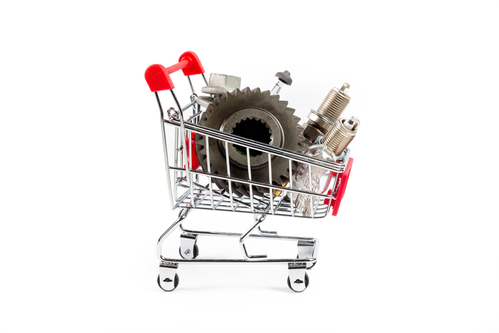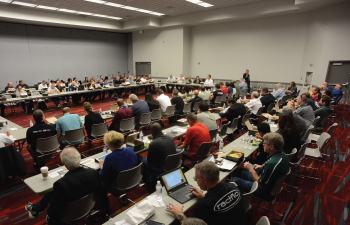INTERNATIONAL
European Union Sets New Online Sales Requirements for Overseas Suppliers
By Linda Spencer

for the sale of “low-value” goods (not exceeding €150) from
outside the EU to buyers inside the EU. If the value of your
goods is higher than that, then you should follow other
traditional Import VAT rules. Photo courtesy: Shutterstock
U.S. suppliers selling over the internet to European consumers need to comply with new regulations regarding the collection, reporting and payment of value-added taxes (VAT). Starting July 2021, sellers located outside the European Union (EU) and shipping orders to consumers located in any of the 27 EU states are required to collect and pay VAT taxes through a new platform known as the Import-One-Stop-Shop (IOSS). These new requirements cover all individual sales of up to €150 (approximately $178 USD) but do not include sales overseas suppliers make through third-party platforms such as Amazon. The following are frequently asked questions regarding requirements for overseas suppliers.
Q: I understand that there are two registration platforms. Should I register for the IOSS or the One-Stop-Shop (OSS)?
A: The IOSS is designed for companies located outside the EU selling to European customers. The OSS is designed for companies based in the EU selling goods to customers in other EU countries.
Q: Can I continue to send European consumers orders for up €22 (approximately $26 USD) VAT-free?
A: No. The VAT exemption for imported goods valued up to €22 has ended. Under the new regulations, vendors are required to collect and pay VAT tax on all sales to consumers valued under €150.
Q: I sell my products exclusively on platforms such as eBay and Amazon. Do I need to register for the IOSS and pay VAT taxes?
A: No. The registration requirement is only for those selling their products directly to European consumers. The third-party market platforms are the ones required to collect and handle the VAT tax rather than the individual sellers.
Q: I sell directly to European consumers, but the items are much more expensive than the €150 noted in the new regulations. Am I affected?
A: This scheme is specifically for the sale of “low-value” goods (not exceeding €150) from outside the EU to buyers inside the EU. If the value of your goods is higher than that, then you should follow the traditional import VAT rules.
Q: Will I need to register for the IOSS in each European country in which I sell, since each has different VAT rates?
A: No, you apply for the IOSS in one country. You are required to collect the correct VAT for each sale depending on the European country in which the consumer is located, but all reporting and payment is done from this one IOSS account. The European Commission website and the websites of national tax administrations provide the VAT tax for each country. If your company does not have an EU-registered entity and is not based in the EU, you will need to appoint a locally established intermediary to handle the registration process.
Q: What are the reporting requirements?
A: IOSS registrants are required to report sales/VAT tax monthly and pay the tax due on a quarterly basis. Suppliers are required to maintain VAT records for 10 years.
Q: What are the situations in which I do not need to fill an IOSS entry?
- A sale valued more than €150. These goods will be taxed at importation.
- A sale to a European consumer not living in one of the 27 EU countries. For example, the United Kingdom, Norway, Switzerland and Iceland are not members of the EU and thus sales into those countries are not included in the new IOSS requirements. These non-EU countries may have their own so-called low-value VAT schemes. For example, the United Kingdom has just this year instituted a system requiring companies register and pay VAT on all e-commerce sales more than £135 (about $186 USD).
- If you sell to a tax-registered business.
- If the sale of goods is facilitated through an electronic marketplace into the EU, the platform is considered to have made the sale and is liable for the payment of VAT.
 Source
Source
For more information, contact Linda Spencer at lindas@sema.org or visit the European Union’s page on the IOSS: https://ec.europa.eu/taxation_customs/business/vat/ioss_en.








